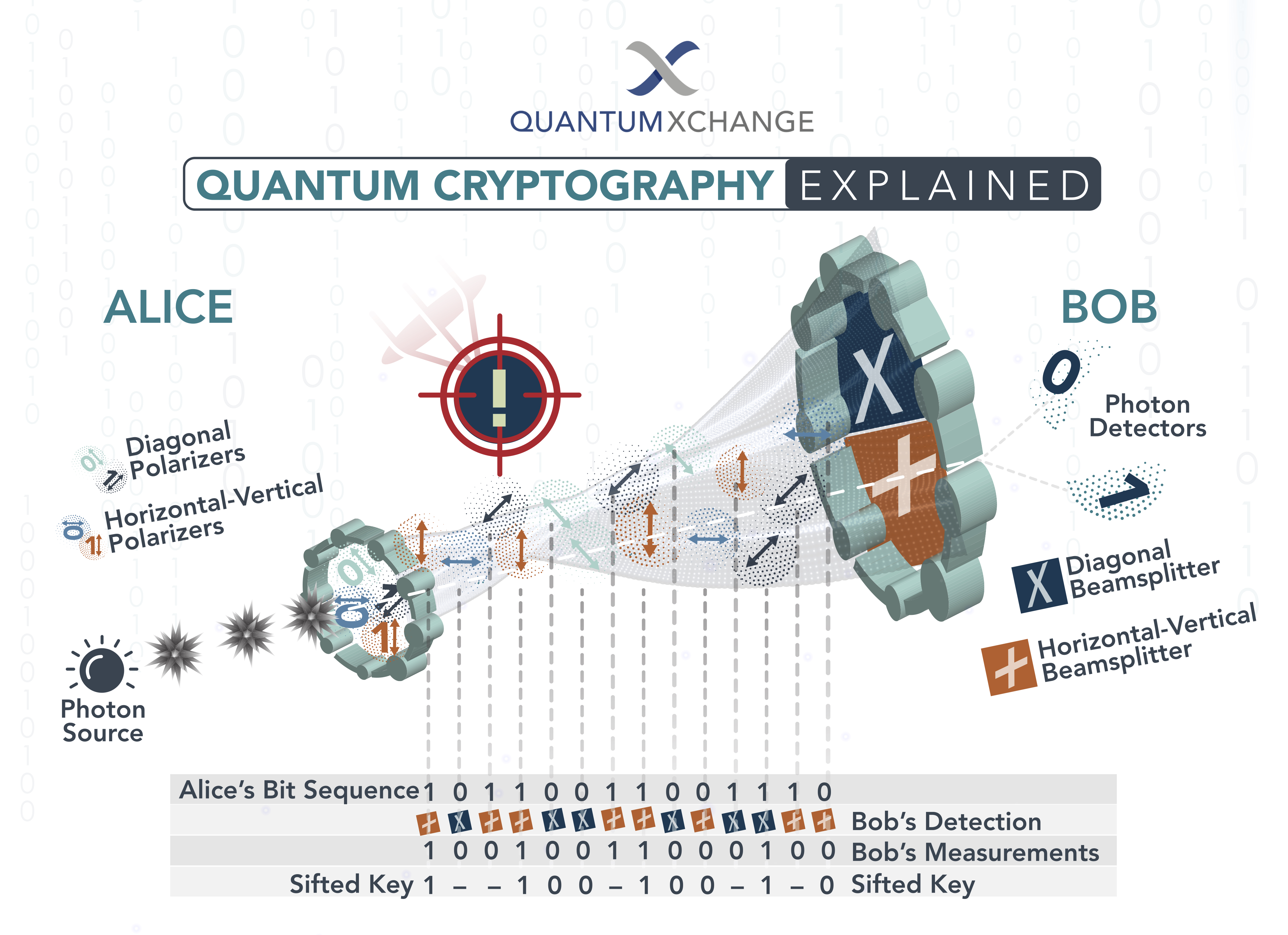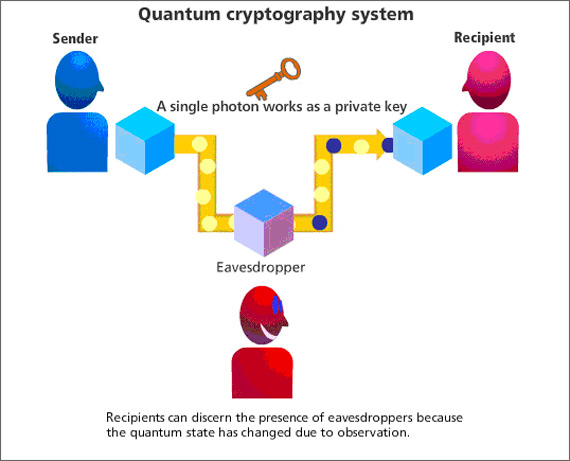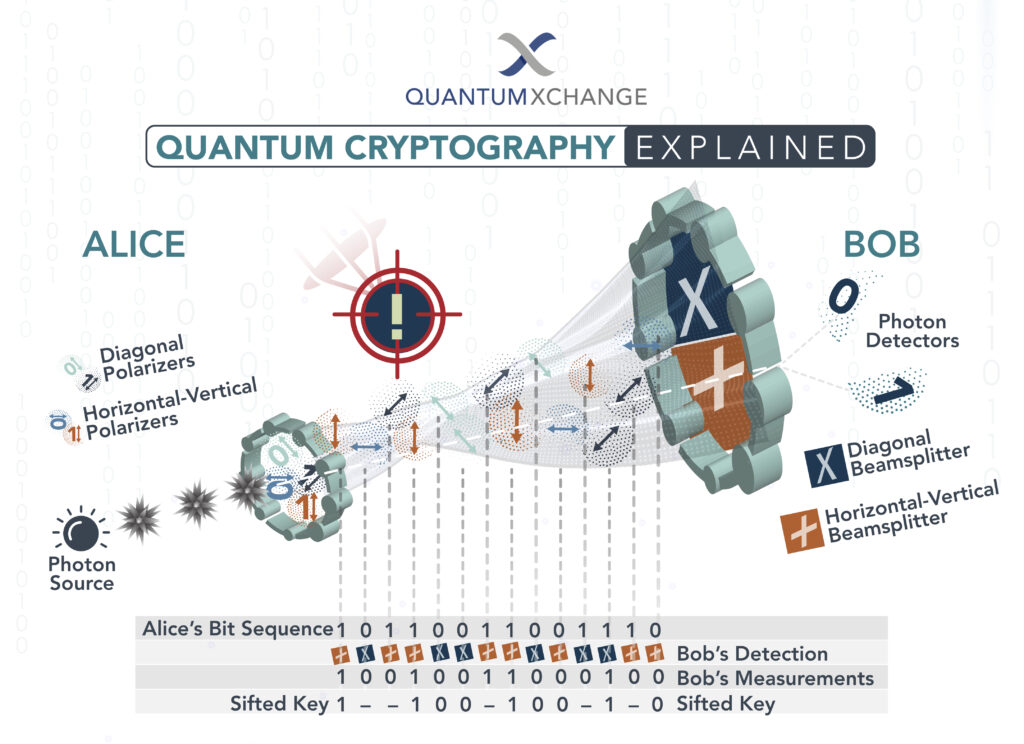Quantum cryptography is a modern technology that takes advantage of the principles of quantum mechanics to secure communication channels. It is a revolutionary approach that promises to make communication more secure than ever before, as it is based on the laws of quantum physics, which are almost impossible to breach.
Unlike traditional encryption methods, which rely on mathematical algorithms to encode messages, quantum cryptography uses the properties of subatomic particles to create unbreakable codes. This technology has the potential to change the way we communicate, by providing a new level of security that is almost impossible to hack. In this article, we will explore the basics of quantum cryptography, how it works, and why it is such an important technology for the future of communication.

What is Quantum Cryptography?
Quantum cryptography is a new and emerging field of cryptography that uses the principles of quantum mechanics to secure data. It is based on the idea that any attempt to eavesdrop on a quantum communication channel will disrupt the quantum state of the particles being used for communication. This disruption can be detected, thus providing a secure communication channel. Quantum cryptography has the potential to revolutionize data security and provide a much more secure form of communication than traditional methods.
How Does Quantum Cryptography Work?
Quantum cryptography works by using the principles of quantum mechanics to secure communication channels. It is based on the idea that any attempt to eavesdrop on a quantum communication channel will disrupt the quantum state of the particles being used for communication. This disruption can be detected, thus providing a secure communication channel.
Quantum Key Distribution
Quantum key distribution (QKD) is a form of quantum cryptography that allows two parties to securely generate a shared key over an insecure channel. This key can then be used to encrypt messages sent between the two parties. QKD works by using the principles of quantum mechanics to ensure that any attempt to eavesdrop on the communication will be detected. The two parties first agree on a set of parameters that will be used for the QKD protocol. Then, one party generates a random string of bits, which act as the “key” for the protocol. This key is then sent to the other party using a quantum channel, such as a photon. The other party then receives the key and verifies that it was received correctly. If the key is received correctly, the two parties can then use the key to encrypt their messages.
Quantum Entanglement
Quantum entanglement is another form of quantum cryptography that uses the phenomenon of quantum entanglement to secure communication channels. Quantum entanglement is a phenomenon in which two particles become “entangled” together, meaning that any measurement of one particle will instantly affect the other particle, regardless of the distance between them. This phenomenon can be used to secure communication channels by sending entangled particles between two parties. One party sends an entangled particle to the other, and the two parties then measure the particles in an attempt to detect any eavesdroppers. If an eavesdropper is detected, the two parties will know that their communication channel is not secure and can take action to secure it.
Quantum Cryptography Protocols
Quantum cryptography protocols are algorithms that are used to securely generate and exchange keys over a quantum channel. These protocols are designed to ensure that the keys generated are secure and that any attempt to eavesdrop on the communication will be detected. Some of the most popular quantum cryptography protocols include: the BB84 protocol, the E91 protocol, and the six-state protocol. Each of these protocols has its own set of advantages and disadvantages, and it is important to select the one that is the most appropriate for the particular application.
Quantum Computing and Quantum Cryptography
Quantum computing is a field of computing that uses the principles of quantum mechanics to process information. It has the potential to revolutionize the way we use computers, and it is already being used in many areas, such as artificial intelligence and cryptography. Quantum cryptography is one of the most promising applications of quantum computing. By using the principles of quantum mechanics, it is possible to securely generate and exchange keys over a quantum channel. This has the potential to revolutionize data security and provide a much more secure form of communication than traditional methods.
Frequently Asked Questions
Quantum cryptography is a revolutionary form of information security that uses the principles of quantum mechanics to protect data. By leveraging the power of quantum physics, quantum cryptography can provide unparalleled levels of data protection and security.
What is Quantum Cryptography?
Quantum cryptography is a form of encryption that uses the principles of quantum mechanics to protect data. It is based on the idea that information can be encoded in the states of particles such as photons or electrons. By using quantum cryptography, data is securely encoded and transmitted using these particles, making it virtually impossible to intercept or decode. Quantum cryptography also provides an unprecedented level of security, as it is virtually impossible to break the encryption without knowing the exact state of the particles used.
How Does Quantum Cryptography Work?
The principles of quantum cryptography rely on the Heisenberg Uncertainty Principle, which states that it is impossible to know both the position and momentum of a particle at the same time. This means that if someone were to intercept a quantum encrypted message, they would not be able to determine the exact state of the particles used to encode the data, thus making the message unreadable. To prevent eavesdropping, quantum cryptography also employs the use of quantum key distribution, which uses quantum particles to generate a secure key for encrypting and decrypting messages.
What are the Benefits of Quantum Cryptography?
Quantum cryptography offers a number of advantages over traditional encryption methods. It is virtually impossible to break the encryption without knowing the exact state of the particles used, making it virtually unhackable. Additionally, quantum cryptography is also more secure than traditional encryption methods, as it is not vulnerable to traditional forms of attack such as brute force or dictionary attacks. Finally, quantum cryptography is also faster than traditional encryption methods, as it does not require complex mathematical calculations.
What are the Limitations of Quantum Cryptography?
While quantum cryptography offers a number of advantages over traditional encryption methods, it also comes with a few limitations. For example, quantum cryptography is limited to the speed of light, meaning that it is not possible to send large amounts of data in a short amount of time. Additionally, quantum cryptography is also limited to line-of-sight communication, meaning that it is not possible to send a quantum encrypted message through walls or other obstacles.
Is Quantum Cryptography Secure?
Yes, quantum cryptography is highly secure. It is virtually impossible to break the encryption without knowing the exact state of the particles used, and it is also not vulnerable to traditional forms of attack such as brute force or dictionary attacks. Additionally, quantum cryptography is also faster than traditional encryption methods, making it an ideal choice for secure data transmission.

What is Quantum Cryptography? An Introduction
In conclusion, quantum cryptography is a fascinating field that has the potential to revolutionize the way we think about secure communication. By harnessing the strange properties of quantum mechanics, scientists have been able to create encryption methods that are essentially unbreakable. While the technology is still in its early stages, it holds great promise for the future of cybersecurity.
As we continue to rely more and more on digital communication, it is essential that we find ways to keep our sensitive information safe from prying eyes. Quantum cryptography offers a new way of achieving this goal, and it is exciting to think about the possibilities that lie ahead. While there are still many challenges to overcome, scientists and engineers are working hard to make quantum cryptography a practical and accessible tool for anyone who needs to keep their data secure. The future of cybersecurity is looking brighter thanks to the power of quantum mechanics.

